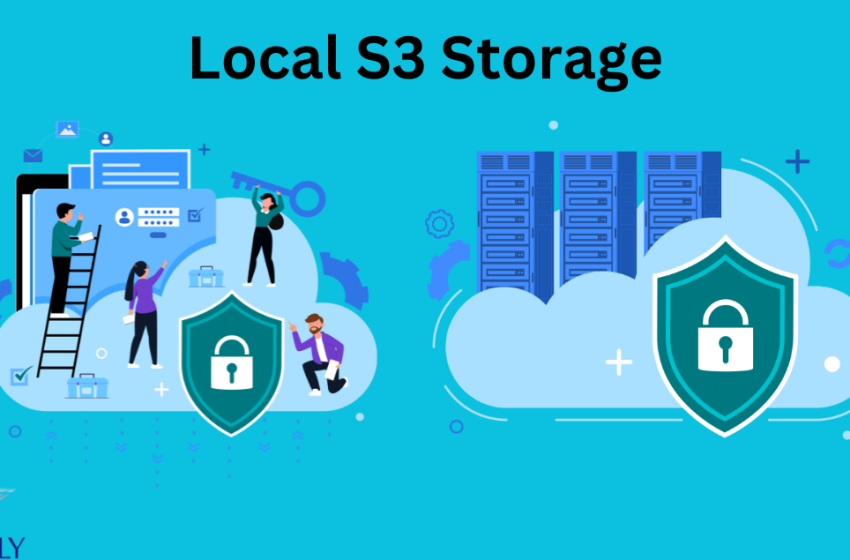Transforming Data Management with Local S3 Storage

Transforming Data Management with Local S3 Storage
Understanding Local S3 Storage
In today’s digital age, businesses are increasingly seeking more effective ways to manage and store their data. Enter Local S3 Storage—a solution that brings a new dimension to how data is stored and accessed. Local S3 storage replicates the functionality of cloud-based object storage systems but does so on-premise or within a local data center. This approach provides users with the flexibility and scalability of cloud storage while offering the benefits of keeping data closer to home.
Local S3 storage is designed to handle large amounts of unstructured data, such as images, videos, and backups. It operates using an object storage architecture, which means data is stored in discrete units called objects, each containing data, metadata, and a unique identifier. This setup enables users to easily store, access, and manage their data through a simple interface.
For businesses, the primary function of local S3 storage is straightforward—provide a cost-effective, secure, and efficient way to store data. Unlike traditional storage systems that can be cumbersome and costly to scale, local S3 storage offers a flexible model that adapts to growing data needs without breaking the bank.
Advantages of Local S3 Storage
Cost-Efficiency
When it comes to storing data, cost is always a concern. Local S3 storage shines in this area by providing a more economical option than many cloud-based alternatives. For businesses with predictable storage demands, local S3 storage allows them to avoid the ongoing expenses associated with cloud storage subscriptions and bandwidth usage.
In addition, local S3 storage eliminates the need for data transfer fees, often incurred when moving data to and from the cloud. This makes it an attractive choice for organizations looking to manage their budgets more effectively while still meeting their data requirements.
Furthermore, local S3 storage enables businesses to capitalize on existing hardware investments. By utilizing in-house storage resources, companies can maximize their infrastructure’s potential without incurring additional costs for new equipment or services.
Data Security
In an era where data breaches and cyberattacks are on the rise, security is paramount. Local S3 storage offers enhanced data protection by keeping sensitive information within the confines of a company’s network. This minimizes the risk of unauthorized access and reduces the potential for data exposure during transfer.
Additionally, local S3 storage can help businesses comply with various data protection regulations, such as the General Data Protection Regulation (GDPR) and the California Consumer Privacy Act (CCPA). By storing data locally, organizations can more easily enforce strict access controls and monitor data activity.
With local S3 storage, companies also maintain full control over their encryption methods and protocols. This means they can implement tailored security measures that fit their specific needs and ensure the highest level of data protection.
Performance
For applications that demand low latency and quick access to data, local S3 storage is a game changer. By keeping data closer to the source of processing, businesses can significantly reduce the time it takes to access and use their information.
This performance boost is particularly beneficial for real-time applications, such as data analytics and video streaming, where delays can impact user experience and service delivery. With local S3 storage, businesses can optimize their operations and deliver seamless experiences to their end users.
Another advantage of local S3 storage is its ability to handle high volumes of data traffic without experiencing bottlenecks. This ensures that businesses can maintain consistent performance even during periods of peak demand.
Use Cases for Local S3 Storage
Small to Medium Businesses
For small to medium-sized businesses (SMBs), local S3 storage presents a practical solution for managing data efficiently. These businesses often have moderate storage needs and limited budgets, making local S3 storage an ideal choice.
By implementing local S3 storage, SMBs can enjoy the benefits of scalable storage without the complexities and costs associated with cloud services. This allows them to focus on their core operations while maintaining a robust data storage solution.
Furthermore, local S3 storage enables SMBs to customize their storage environment to suit their unique requirements. Whether it’s adjusting capacity or configuring security settings, businesses have the flexibility to tailor their storage system to their needs.
Edge Computing
Edge computing is a technology trend that involves processing data closer to where it is generated rather than relying on a centralized data center. Local S3 storage plays a crucial role in supporting edge computing by providing a localized storage solution that complements on-site processing.
With local S3 storage, businesses can store and analyze data at the edge, reducing the need to send information back and forth to a central location. This enhances efficiency and reduces latency, making it an excellent option for industries such as healthcare, manufacturing, and logistics.
Additionally, local S3 storage supports the scalability required for edge computing environments. Organizations can easily expand their storage capacity as needed, ensuring they have the resources to manage the growing volume of data generated at the edge.
Content Delivery
In the realm of content delivery, speed is everything. Local S3 storage helps businesses deliver content more efficiently by caching Data closer to end users. This approach minimizes latency and improves the overall user experience, which is crucial in today’s fast-paced digital world.
For companies involved in media and entertainment, local S3 storage is particularly advantageous. It allows them to store large media files locally, ensuring quick access and playback for their audiences. This capability is vital for streaming services, online gaming platforms, and other content-driven businesses.
Furthermore, local S3 storage can be integrated with content delivery networks (CDNs) to further enhance content distribution. By working together, these technologies provide a seamless and efficient way to deliver content to users across the globe.
Challenges and Solutions
Scalability
While local S3 storage offers many benefits, one challenge that businesses may face is scalability. Unlike cloud storage, which can be easily expanded to accommodate growing data needs, local storage systems have physical limitations.
To address this challenge, businesses can implement hybrid storage solutions that combine local S3 storage with cloud-based options. This allows them to leverage the best of both worlds, maintaining control over their data while enjoying the scalability of the cloud.
Additionally, businesses can adopt modular storage systems that can be easily expanded as needed. These systems provide the flexibility to add more storage capacity without requiring a complete overhaul of the existing infrastructure.
Disaster Recovery
Ensuring data availability and recovery in the event of a disaster is another consideration for businesses using local S3 storage. While local storage offers enhanced control and security, it may also be susceptible to risks such as hardware failure or natural disasters.
To mitigate these risks, businesses should implement robust disaster recovery strategies that include regular data backups and off-site storage solutions. By maintaining copies of critical data in multiple locations, organizations can ensure business continuity even in the face of unexpected events.
It’s also important for businesses to establish clear recovery protocols and conduct regular disaster recovery drills. This helps ensure that employees are prepared to respond effectively in the event of a disruption.
Conclusion
Local S3 storage offers a compelling alternative to traditional cloud-based storage solutions, delivering cost-efficiency, enhanced security, and improved performance. The ability to store data locally while maintaining the flexibility and scalability of cloud storage makes it an attractive option for businesses of all sizes.
As we’ve explored, local S3 storage has numerous applications across various industries, from small to medium businesses to edge computing and content delivery. By understanding the advantages and challenges of local S3 storage, businesses can make informed decisions about their data management strategies.
For those looking to explore further, consider consulting with storage experts or exploring additional resources on local storage solutions. By taking proactive steps, businesses can unlock the full potential of their data and drive innovation in an increasingly data-driven world.
FAQs
What is local S3 storage?
Local S3 storage refers to an on-premise storage solution that replicates the functionalities of cloud-based object storage systems, offering a flexible and scalable way to manage data locally.
How is local S3 storage cost-effective?
Local S3 storage is cost-effective because it eliminates the ongoing expenses associated with cloud storage subscriptions and bandwidth usage, allowing businesses to maximize their existing hardware investments.
Can local S3 storage improve data security?
Yes, local S3 storage enhances data security by keeping sensitive information within a company’s network, providing businesses with greater control over access and encryption measures.
What industries benefit from local S3 storage?
Various industries can benefit from local S3 storage, including small to medium businesses, healthcare, manufacturing, logistics, and media and entertainment.
How can businesses overcome scalability challenges with local S3 storage?
Businesses can overcome scalability challenges by adopting hybrid storage solutions that combine local S3 storage with cloud-based options, as well as implementing modular storage systems that allow for easy expansion.


